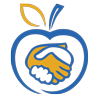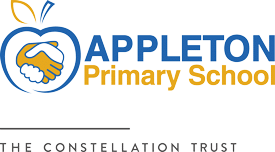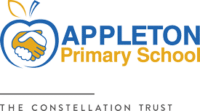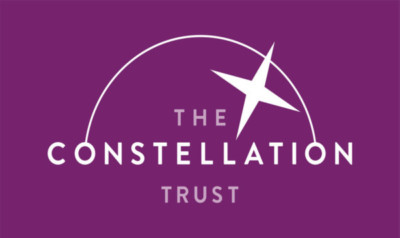Science – curriculum overview
Intent
At Appleton Primary School, we strive to deliver a high quality Science curriculum which allows our pupils to recognise the significance of science in their everyday lives. We explicitly teach pupils the skills and knowledge they need to become methodical, analytical and inquisitive scientists.
Our curriculum has science enquiry at its heart. We encourage our pupils to be enquiry based learners and our science teaching ensures our pupils develop the necessary disciplinary knowledge as they progress through the school to enable them to become the scientists of the future.
As scientists, pupils throughout Appleton work collaboratively to develop their research, communication and critical thinking skills. We encourage curiosity about natural phenomena and encourage our pupils to ask questions about the world around them.
We ensure all children are exposed to high quality science teaching and a range of learning experiences. Science teaching is carefully sequenced to ensure a clear progression of substantive knowledge and disciplinary knowledge. Each lesson is designed to explore and build on children’s prior knowledge. This allows for misconceptions to be addressed effectively.
The substantive knowledge builds progressively to develop children’s understanding of concepts, models, laws and theories. It is organised into the following four areas:
Biology
- Living things and their environment
- Reproduction, inheritance and evolution
Chemistry
- States of matter
- Materials (properties and changes)
Physics
- Energy
- Forces
Earth Science
- Earth and space
The disciplinary knowledge builds progressively to enable children to work scientifically and covers the following aspects:
- Methods used to answer questions
- Using apparatus and techniques
- Data analysis
- Using evidence to develop explanations
We deliver a broad and balanced science curriculum which stimulates and maintains children’s natural curiosity. Key scientists, significant discoveries and theories are also focused on to give the children a real-life understanding of the concepts taught. Where possible, real-life examples are used in lessons to give our children a deeper understanding of these concepts.
By the end of EYFS, children can identify similarities and differences between themselves and others, places, objects, materials and living things and are able to discuss past and present events in their own lives. They can make simple observations of animals and plants. They recognise that technology is used for particular purposes in different environments and can select technology appropriately. They can explore how to make things move.
By the end of KS1, the basic fundamentals of the biology strand have been established. Pupils explore animals, humans and changes within environments and begin to develop simple scientific vocabulary linked to this. Children use different types of scientific enquiry to answer a range of questions. Children are encouraged to ask questions, discuss their findings and present the ideas in a variety of ways.
By the end of KS2, pupils have a deep understanding of a range of scientific ideas. Children are able to link scientific ideas to the world around them and, through research, understand how scientific ideas are developed over time. Children use secondary sources of information and practical enquiry to draw conclusions and find things out.
- Pupils have an understanding of the key domains of knowledge and can use key concepts to make links between the domains
- Pupils can ask questions and make observations about the world around them using scientific knowledge
- Pupils can analyse data and articulate evidenced conclusions
- Pupils are able to follow and design scientific enquiries
- Pupils have an understanding of some of the major issues facing our planet and an appreciation of the importance of science to wider society
Implementation
At Appleton Primary School we use the Snap Science scheme as a basis for science planning. The Collins scheme has been developed by a team of leading science experts and then refined by Science Leaders across the Constellation Trust. The programme ensures the full coverage of the National Curriculum following the identified programmes of study. Working scientifically disciplinary knowledge is embedded throughout the scheme alongside the substantive knowledge to ensure clear progression towards carefully identified end points.
Our curriculum is centred upon the ‘big ideas in science’; this requires deep thinking, exploration, discussion, investigating and researching. The clear progression ensures that children are continually building on their prior learning as they systematically develop their understanding of key ideas and their scientific skills. Pupils have opportunities to ask their own questions and consider which types of scientific enquiry are likely to be the best way of answering them. Our pupils draw conclusions and use scientific vocabulary to discuss and present their findings in a range of different ways.
The substantive knowledge has been organised around a set of key concepts which are revisited as pupils progress through the school. (See progression document)
Across the year, we explore different aspects of scientific enquiry and build pupils’ skills and knowledge in each aspect as they progress through the school.
- Observing over time: (observing or measuring how one variable changes over time)
- Identifying and classifying: (identifying and naming materials/living things and making observations or carrying out tests to organise them into groups.)
- Looking for patterns: (making observations or carrying out surveys of variables that cannot be easily controlled and looking for relationships between two sets of data)
- Comparative and fair testing: (observing or measuring the effect of changing one variable when controlling others)
- Answering questions using secondary sources of evidence: (answering questions using data or information that they have not collected first hand)
- Using models: (Developing or evaluating a model or analogy that represents a scientific idea, phenomenon or process)
Impact
The successful, collaborative approach to the teaching of science across the Constellation Trust results in an engaging, high quality education that allows pupils to understand the world around them and encourages them to explore science further as they leave primary school.
By the end of the primary school education, pupils will:
- Have an understanding of the key domains of knowledge and can use key concepts to make links between domains
- Ask questions and make observations about the world around them using scientific knowledge
- Analyse data and articulate evidenced conclusions
- Follow and design scientific enquiries
- Have an understanding of some of the major issues facing our planet and an appreciation of the importance of science to wider society
The impact of children’s learning is measured through the use of a key learning mind map which demonstrates key areas and points of learning from each session. Where learning is not secure, additional teaching and learning will take place to address this.
Curriculum progression information:

“Big shout out to the teachers – doing a great job.”

“Resources have been really helpful and provided challenge.”

“You do an amazing job with our children.”

“Thank you from myself and my boys – we just wanted to show our appreciation.”

“Had a lovely morning visiting the school. It’s always a pleasure to meet with teachers who value the importance of the Arts in education.”

“It looks like the children are really enjoying themselves.”

“Very enthusiastic pupils with lots of energy and impeccable behaviour.”

“Fantastic school, students were brilliant. Thanks for having us.”

“Thank you to all teachers. Good teaching changes lives.”

“My son is sad to be leaving Appleton. He has loved his time at the school.”

“Thank you for your support at this time – it has really meant a lot.”

“Thank you for your efforts, it makes a huge difference to the kids!”

“Thanks as always for putting the school work onto the website for my children.”

“Thank you to everyone involved in producing that work as it is a perfect indicator of what levels and subjects to go with.”

“The children were an absolute delight, full of smiles and energy. Thank you for a lovely afternoon.”




